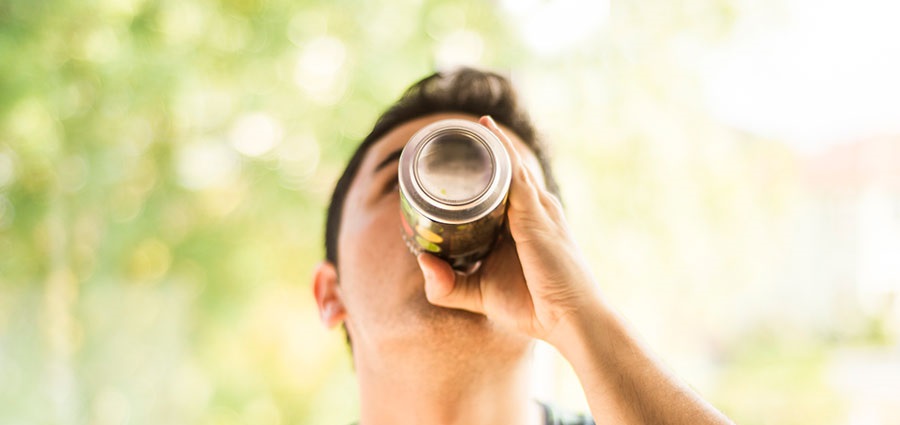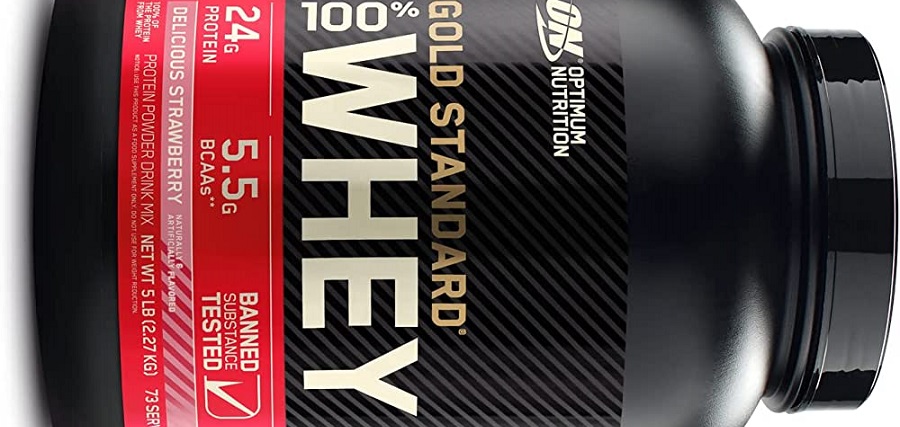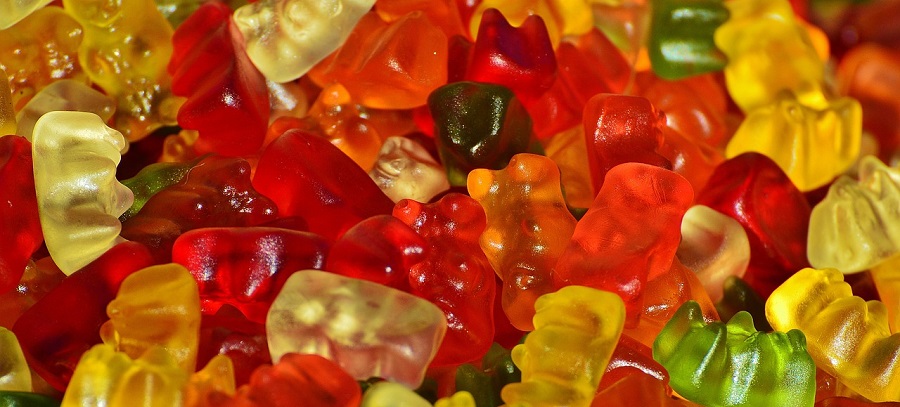Energy drinks typically contain a combination of ingredients that are intended to provide a boost of energy. The most common ingredients found in energy drinks include caffeine, taurine, and sugar.
Caffeine is a stimulant that can help to increase alertness and reduce feelings of fatigue. It is the most widely consumed psychoactive drug in the world and is found in many beverages including coffee, tea, and soda. The amount of caffeine in energy drinks can vary, but it is typically between 80-200 mg per serving.
Taurine is an amino acid that is found in many energy drinks. It is thought to enhance the effects of caffeine, and may also have antioxidant properties. It is also found in some energy supplements.
Sugar is added to many energy drinks to provide a quick boost of energy. However, excessive sugar intake can lead to weight gain and other health problems. Some energy drinks use artificial sweeteners as an alternative to sugar.
Other ingredients that are often found in energy drinks include B vitamins, guarana, ginseng, and L-carnitine. B vitamins are important for energy metabolism, guarana is a natural source of caffeine, ginseng is thought to improve physical and mental performance, and L-carnitine is an amino acid that is thought to help the body produce energy.
It's important to note that Energy drinks can be high in caffeine and sugar, and consuming too much can lead to negative side effects such as jitteriness, anxiety, and high blood pressure. It's also important to be aware of the ingredients and their effects and consult a doctor if you have any concerns, particularly if you have a pre-existing health condition.
What are the most commonly used ingredients in energy drinks?
The most common ingredients found in energy drinks include caffeine, taurine, and sugar. Caffeine is a stimulant that helps to increase alertness and reduce feelings of fatigue. It is the most widely consumed psychoactive drug in the world and is found in many beverages. The amount of caffeine in energy drinks can vary, but it is typically between 80-200 mg per serving. Taurine is an amino acid that is found in many energy drinks. It is thought to enhance the effects of caffeine, and may also have antioxidant properties. Sugar is added to many energy drinks to provide a quick boost of energy. However, excessive sugar intake can lead to weight gain and other health problems. Some energy drinks use artificial sweeteners as an alternative to sugar. Other ingredients that are often found in energy drinks include B vitamins, guarana, ginseng, and L-carnitine. B vitamins are important for energy metabolism, guarana is a natural source of caffeine, ginseng is thought to improve physical and mental performance, and L-carnitine is an amino acid that is thought to help the body produce energy.
How do caffeine and sugar affect the energy-boosting properties of energy drinks?
Caffeine is a stimulant that works by stimulating the central nervous system, which can increase alertness and reduce feelings of fatigue. This can lead to a temporary boost in energy levels. However, overconsumption of caffeine can lead to negative side effects such as jitteriness, anxiety, and high blood pressure.
Sugar is added to many energy drinks to provide a quick boost of energy. When consumed, sugar is rapidly absorbed into the bloodstream, leading to a spike in blood sugar levels, which can give a person a temporary boost of energy. However, this boost is usually short-lived and can be followed by a crash in energy levels, leading to feelings of fatigue and drowsiness. Excessive sugar intake can also contribute to weight gain and other health problems.
The energy-boosting properties of energy drinks are not only due to caffeine and sugar, but also other ingredients like taurine, guarana, ginseng, and B vitamins. These ingredients can work together to provide a temporary boost in energy levels, but excessive consumption of energy drinks can also lead to negative side effects and it's important to consume them in moderation and be aware of the ingredients and their potential effects. It's also important to consult a doctor if you have any concerns, particularly if you have a pre-existing health condition.
What is taurine and why is it used in many energy drinks?
Taurine is an amino acid that is found in many energy drinks. It is a naturally occurring compound that is found in the human body and in a variety of foods, including fish and meat.
Taurine is thought to enhance the effects of caffeine in energy drinks, and may also have antioxidant properties. Some studies have suggested that taurine can help to improve mental and physical performance, and may also have a positive effect on heart health.
However, it's important to note that most of these studies have been conducted in animals and more research is needed to understand the effects of taurine in humans. Also, excessive consumption of taurine can be harmful and it's important to consume energy drinks in moderation.
Taurine is also used in other energy supplements, as well as energy shots, and energy chews.
It's also important to consult a doctor before consuming energy drinks, particularly if you have a pre-existing health condition. And it's always good to be aware of the ingredients and their potential effects.
Can energy drinks be made with natural ingredients?
Yes, energy drinks can be made with natural ingredients. Some energy drinks use natural sources of caffeine such as guarana, yerba mate, and green tea. Additionally, some energy drinks use natural sweeteners such as honey, agave nectar, and stevia instead of artificial sweeteners or sugar. Some energy drinks also use herbs and botanicals such as ginseng and maca to provide an energy boost.
It's important to note that, just because an energy drink is made with natural ingredients, it doesn't mean that it's always safe, and it's important to consume them in moderation. Some natural ingredients can also have negative side effects if consumed in large quantities, and it's always good to be aware of the ingredients and their potential effects. It's also important to consult a doctor before consuming energy drinks, particularly if you have a pre-existing health condition.
It's also important to note that the term "natural" can be misleading and not always regulated, so it's good to read the label and ingredient list of any energy drink you want to consume to understand what it contains.
What are the potential risks and side effects of consuming energy drink ingredients?
Consuming energy drinks can lead to a number of potential risks and side effects, depending on the ingredients used and the amount consumed. Some of the most common side effects associated with energy drinks include:
-
Caffeine-related side effects: Consuming excessive amounts of caffeine can lead to jitteriness, anxiety, and high blood pressure. It can also disrupt sleep, leading to insomnia and other sleep disorders.
-
Sugar-related side effects: Consuming excessive amounts of sugar can lead to weight gain, diabetes, and other health problems.
-
Taurine-related side effects: The safety of taurine in energy drinks is not fully understood, and excessive consumption of taurine can be harmful.
-
B-vitamin related side effects: High doses of B-vitamins can cause side effects such as skin rashes, acne, stomach upset and diarrhea
-
Guarana-related side effects: Guarana is a natural source of caffeine and consuming excessive amounts can lead to similar side effects as caffeine.
-
Ginseng-related side effects: Long-term use or excessive consumption of ginseng can cause side effects such as headaches, insomnia, and high blood pressure
It's also important to note that consuming energy drinks in combination with alcohol or other stimulants can increase the risk of negative side effects.
It's important to consume energy drinks in moderation, to be aware of the ingredients and their potential effects and to consult a doctor before consuming energy drinks, particularly if you have a pre-existing health condition.
How do the ingredients in energy drinks interact with one another to provide energy?
The ingredients in energy drinks interact with one another in different ways to provide energy.
Caffeine is a stimulant that works by stimulating the central nervous system, which can increase alertness and reduce feelings of fatigue. This can lead to a temporary boost in energy levels.
Taurine is an amino acid that is found in many energy drinks. It is thought to enhance the effects of caffeine, and may also have antioxidant properties. Some studies have suggested that taurine can help to improve mental and physical performance.
Sugar is added to many energy drinks to provide a quick boost of energy. When consumed, sugar is rapidly absorbed into the bloodstream, leading to a spike in blood sugar levels, which can give a person a temporary boost of energy.
B vitamins are important for energy metabolism, and B-vitamins such as B12, B6, and B3 found in energy drinks can help to convert food into energy.
Guarana is a natural source of caffeine and can also provide energy boost
Ginseng is thought to improve physical and mental performance, and can help to boost energy levels.
L-carnitine is an amino acid that is thought to help the body produce energy.
These ingredients can work together to provide a temporary boost in energy levels, but it's important to consume energy drinks in moderation and be aware of the ingredients and their potential effects. And it's always good to consult a doctor before consuming energy drinks, particularly if you have a pre-existing health condition.


